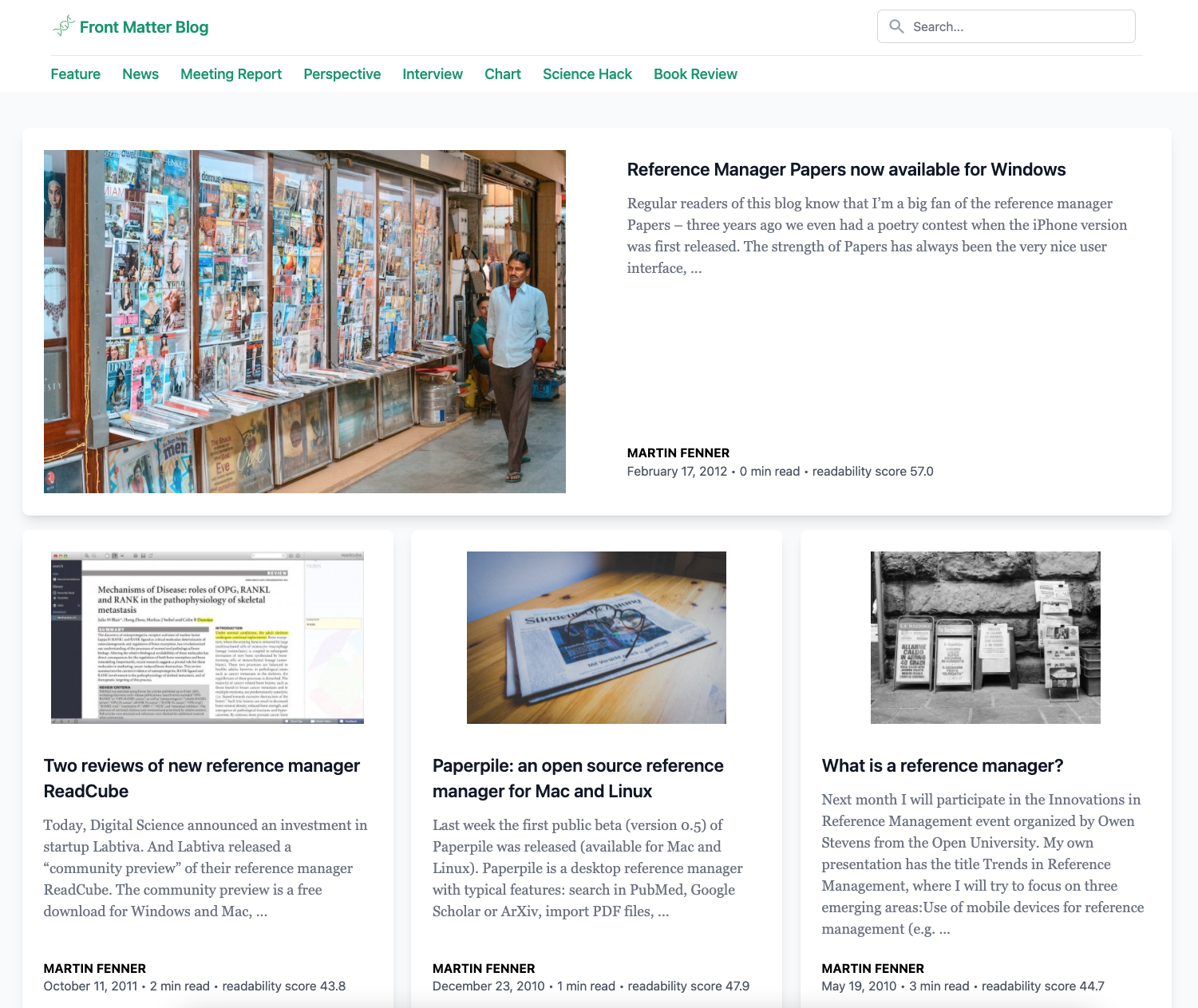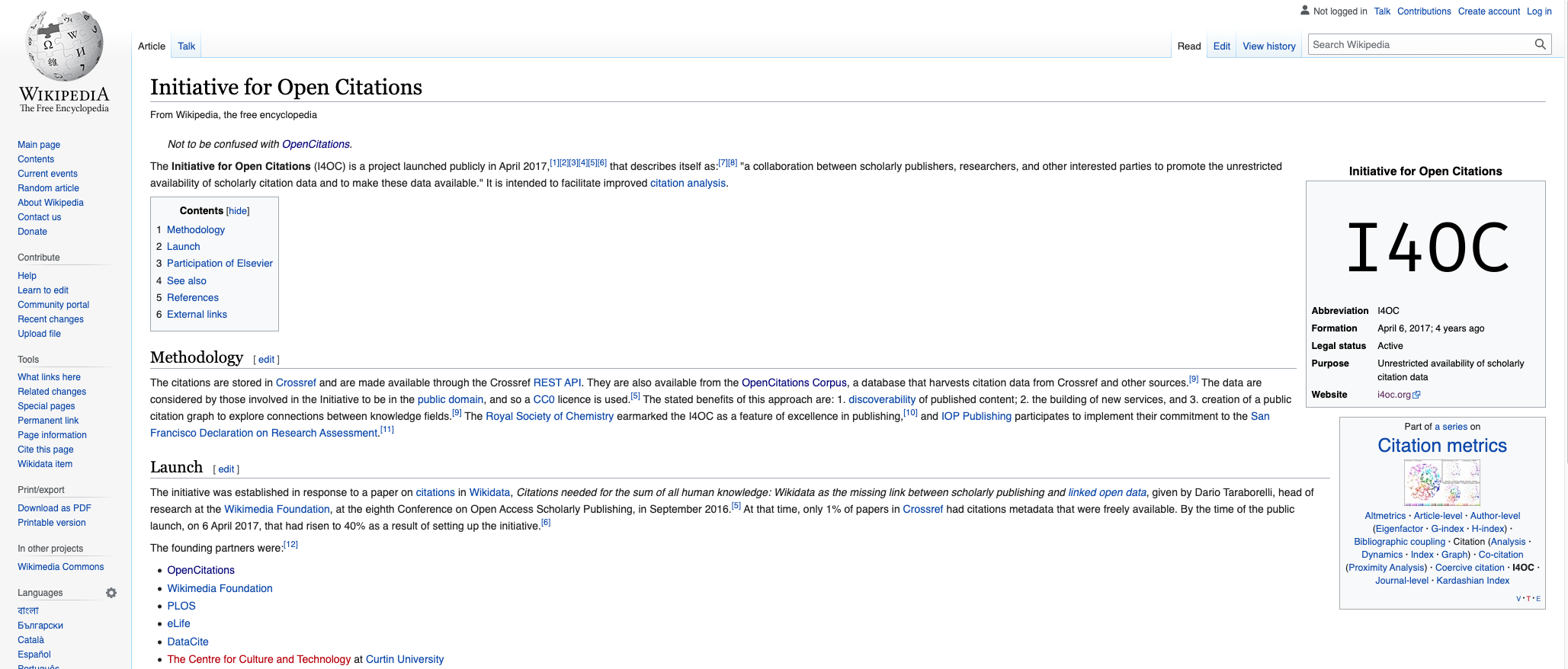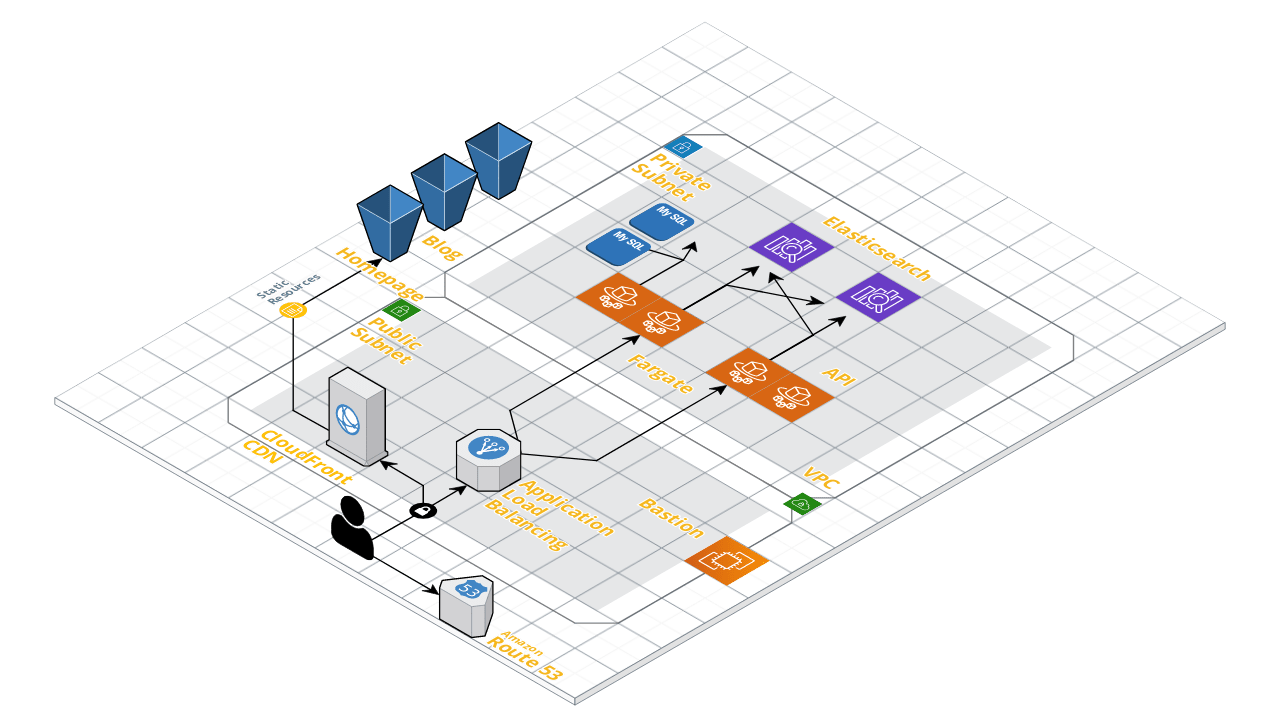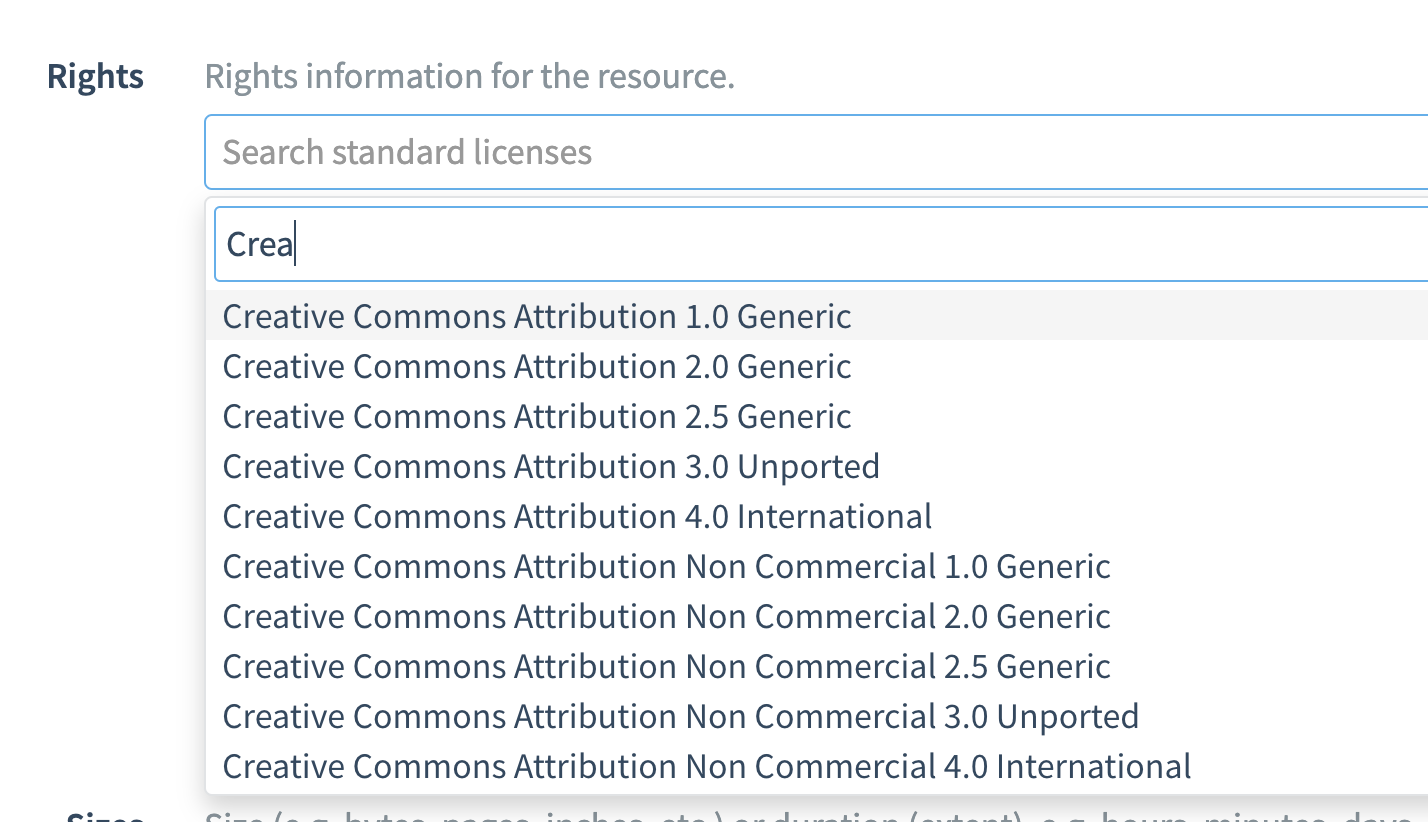
This blog since earlier this month is no longer using a JAMStack setup but a regular Ghost setup using Ghost Pro for hosting. The primary driver were the new native search and native comments, but I needed to do a little bit of work to keep the DOI registration working. This is done now, and an added benefit is that DOI registration is now straightforward for any blog that uses Ghost as a platform.








